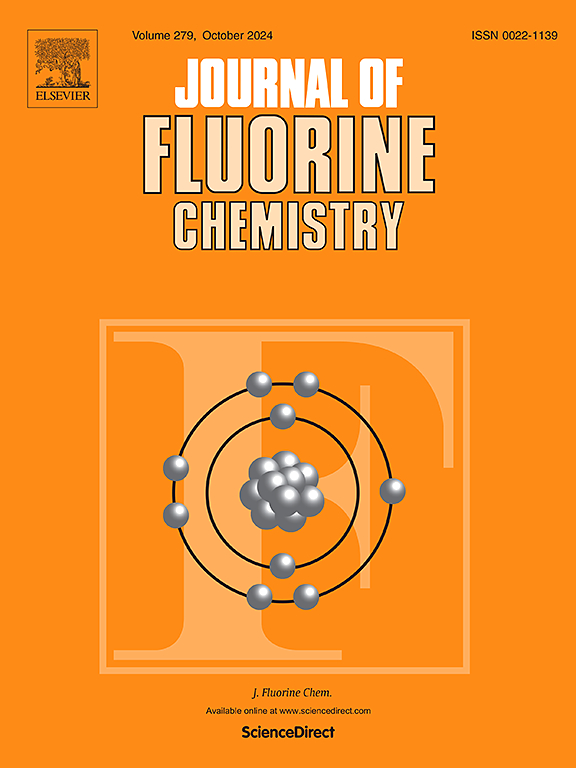铱络合物对 N-乙酰氨基苯甲酸的串联脱羧/氟化反应
IF 1.7
4区 化学
Q3 CHEMISTRY, INORGANIC & NUCLEAR
引用次数: 0
摘要
脱羧转化是碳-异原子键形成的重要工具。然而,芳香族羧酸脱羧生成 C(sp2)-F 键的合成应用仍然有限。在此,我们提出利用 Ir(I)/bisphosphine 复合物串联催化 N-acetylanthranilic acids 的脱羧/氟化反应来生产有用的有机氟化合物。本文章由计算机程序翻译,如有差异,请以英文原文为准。

Tandem decarboxylation/fluorination of N-acetylanthranilic acids by iridium complexes
Decarboxylative transformations are valuable tools for carbon-heteroatom bond formation. However, synthetic applications of the decarboxylation of aromatic carboxylic acids to produce C(sp2)–F bonds remain limited. Herein, we propose a tandem catalytic decarboxylation/fluorination of N-acetylanthranilic acids to produce useful organofluorine compounds by using Ir(I)/bisphosphine complexes.
求助全文
通过发布文献求助,成功后即可免费获取论文全文。
去求助
来源期刊

Journal of Fluorine Chemistry
化学-无机化学与核化学
CiteScore
3.80
自引率
10.50%
发文量
99
审稿时长
33 days
期刊介绍:
The Journal of Fluorine Chemistry contains reviews, original papers and short communications. The journal covers all aspects of pure and applied research on the chemistry as well as on the applications of fluorine, and of compounds or materials where fluorine exercises significant effects. This can include all chemistry research areas (inorganic, organic, organometallic, macromolecular and physical chemistry) but also includes papers on biological/biochemical related aspects of Fluorine chemistry as well as medicinal, agrochemical and pharmacological research. The Journal of Fluorine Chemistry also publishes environmental and industrial papers dealing with aspects of Fluorine chemistry on energy and material sciences. Preparative and physico-chemical investigations as well as theoretical, structural and mechanistic aspects are covered. The Journal, however, does not accept work of purely routine nature.
For reviews and special issues on particular topics of fluorine chemistry or from selected symposia, please contact the Regional Editors for further details.
 求助内容:
求助内容: 应助结果提醒方式:
应助结果提醒方式:


